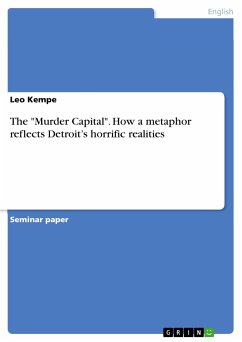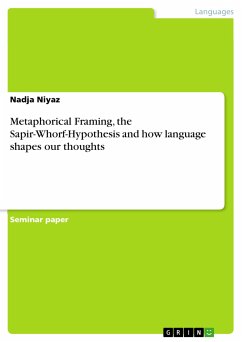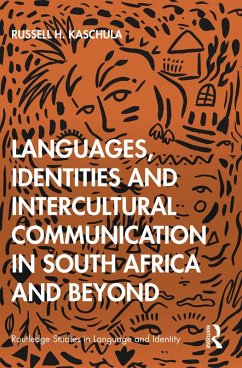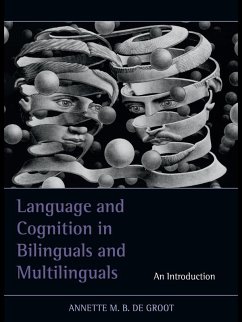
Languages, thoughts and realities? (eBook, PDF)
Sofort per Download lieferbar
Statt: 17,95 €**
13,99 €
inkl. MwSt. und vom Verlag festgesetzt.
**Preis der gedruckten Ausgabe (Broschiertes Buch)
Alle Infos zum eBook verschenkenWeitere Ausgaben:

PAYBACK Punkte
0 °P sammeln!
Seminar paper from the year 2003 in the subject English Language and Literature Studies - Linguistics, grade: 1, Otto-von-Guericke-University Magdeburg (Institut für fremdsprachliche Philologien), course: Language and Cognition (WS 2002/2003), language: English, abstract: This paper analyzes Whorf's hypothesis that thinking is determined and limited by the language used. This hypothesis implies that certain thoughts can only be expressed in one language, but not in another. Thus, a text given in the first language that is about such thoughts could not completely be translated into the second ...
Seminar paper from the year 2003 in the subject English Language and Literature Studies - Linguistics, grade: 1, Otto-von-Guericke-University Magdeburg (Institut für fremdsprachliche Philologien), course: Language and Cognition (WS 2002/2003), language: English, abstract: This paper analyzes Whorf's hypothesis that thinking is determined and limited by the language used. This hypothesis implies that certain thoughts can only be expressed in one language, but not in another. Thus, a text given in the first language that is about such thoughts could not completely be translated into the second one. In this paper Nagel's and Davidson's notion of the concept scheme is used to refute Whorf's hypothesis in every way it could possibly be interpreted. Furthermore, it shows practical ways of how any natural language that could possibly exist or be designed in the universe can effectively be translated into any other language. To answer all the questions that arise, this paper creates a bridge between linguistics, philosophy, psychology and epistemology (theory of knowledge).
Dieser Download kann aus rechtlichen Gründen nur mit Rechnungsadresse in A, B, BG, CY, CZ, D, DK, EW, E, FIN, F, GR, HR, H, IRL, I, LT, L, LR, M, NL, PL, P, R, S, SLO, SK ausgeliefert werden.













